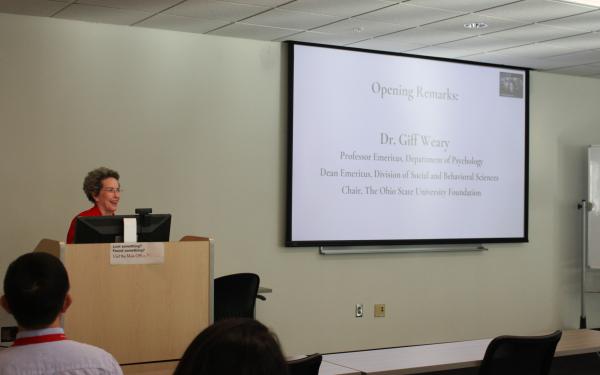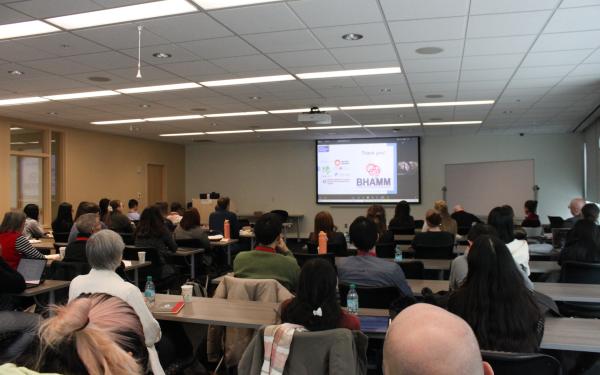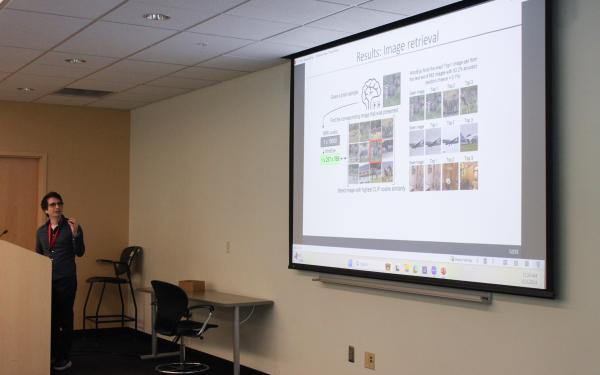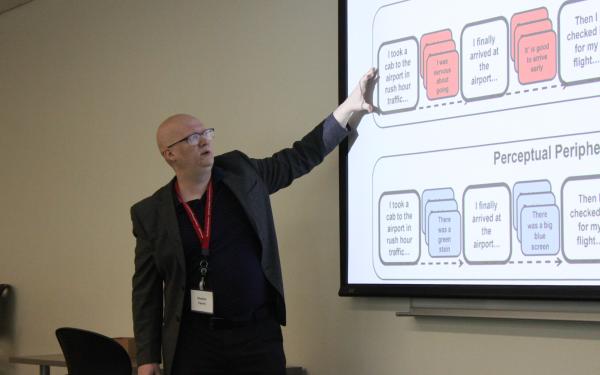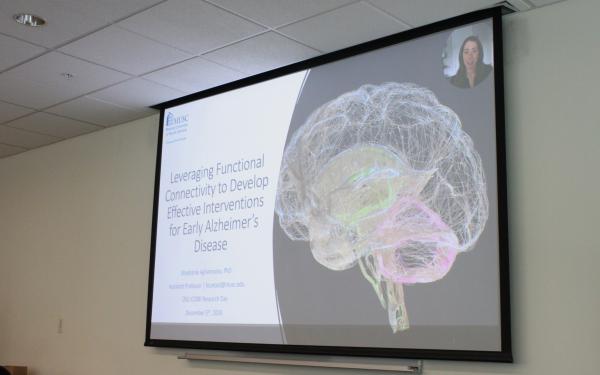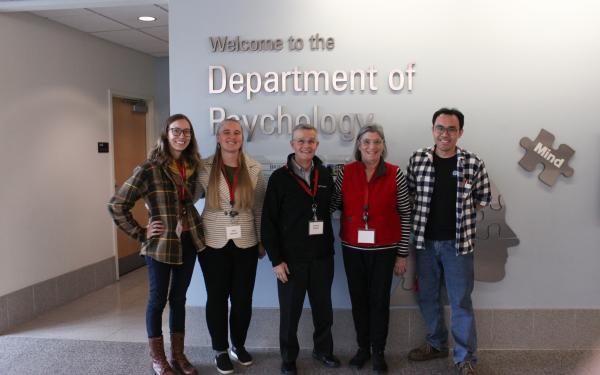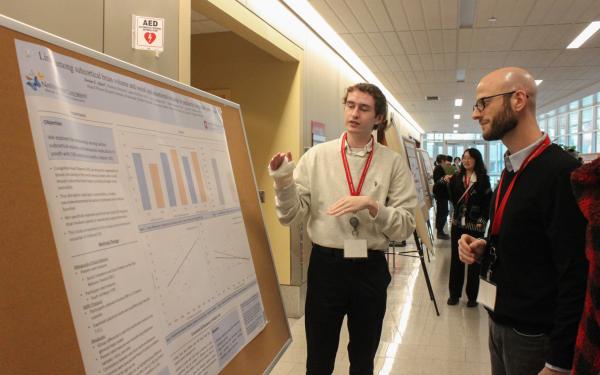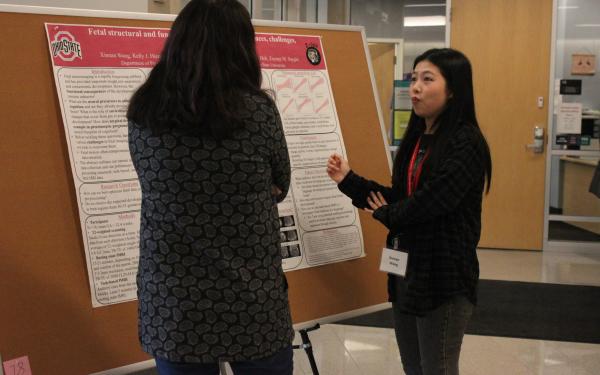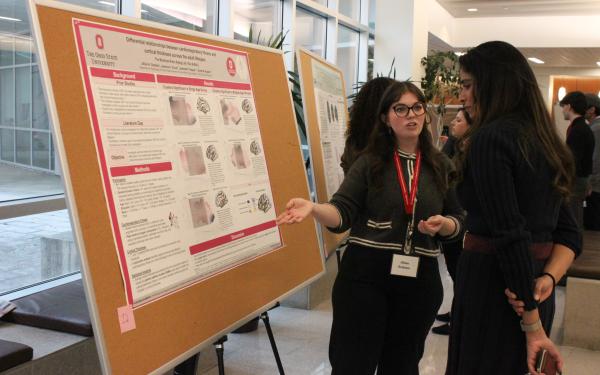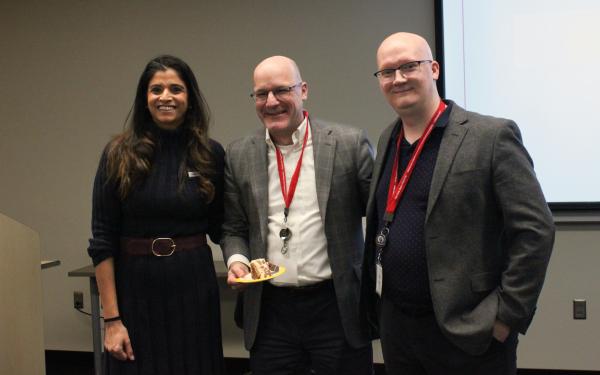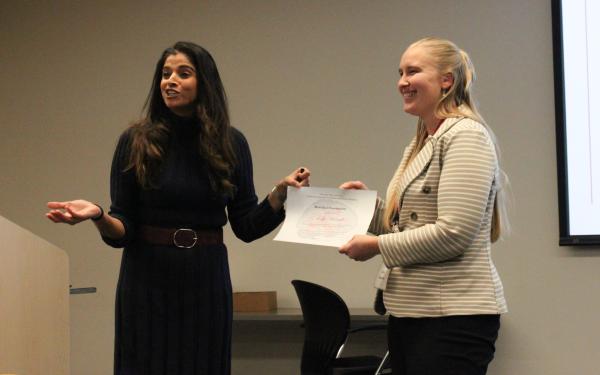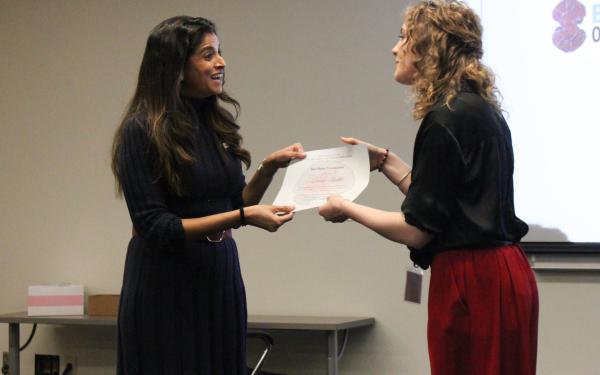Research Day 2024
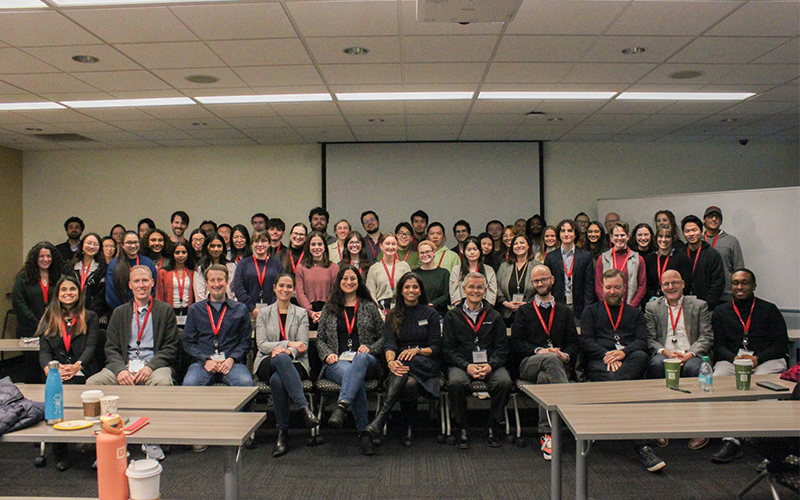
Thank you to everyone who attended the fifth annual Research Day!
This year's event was extra special. We featured talks from three CCBBI alumni, Dr. Charlie Ferris, former post-doc with Dr. Baldwin Way, Dr. Paul Scotti, graduate student with Drs. Julie Golomb and Andy Leber, and Dr. Stephanie Aghamoosa, graduate student with Dr. Ruchika Prakash; and a Keynote Address by Dr. Natasha Rajah, a leader in the field of Alzheimer's Disease, with a focus on the role of sex, gender, and social determinants. In addition, we had four oral presentations from students and 20 poster presentations from students and research staff.
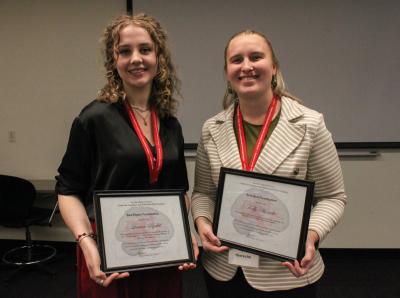
Congratulations to the award winners:
Kelly Hiersche, Examining Developmental Variability in Functional Selectivity and Spatial Location of High-Level Visual Regions, for Best Oral Presentation
Lauren Rydel, Investigating Visual and Auditory Language Reponses in the Ventral Temporal Cortex of Pre-Reading Children: A Multivariate Analysis, for Best Poster Presentation
Abstracts and videos of Research Day presentations are found in the Program Book
